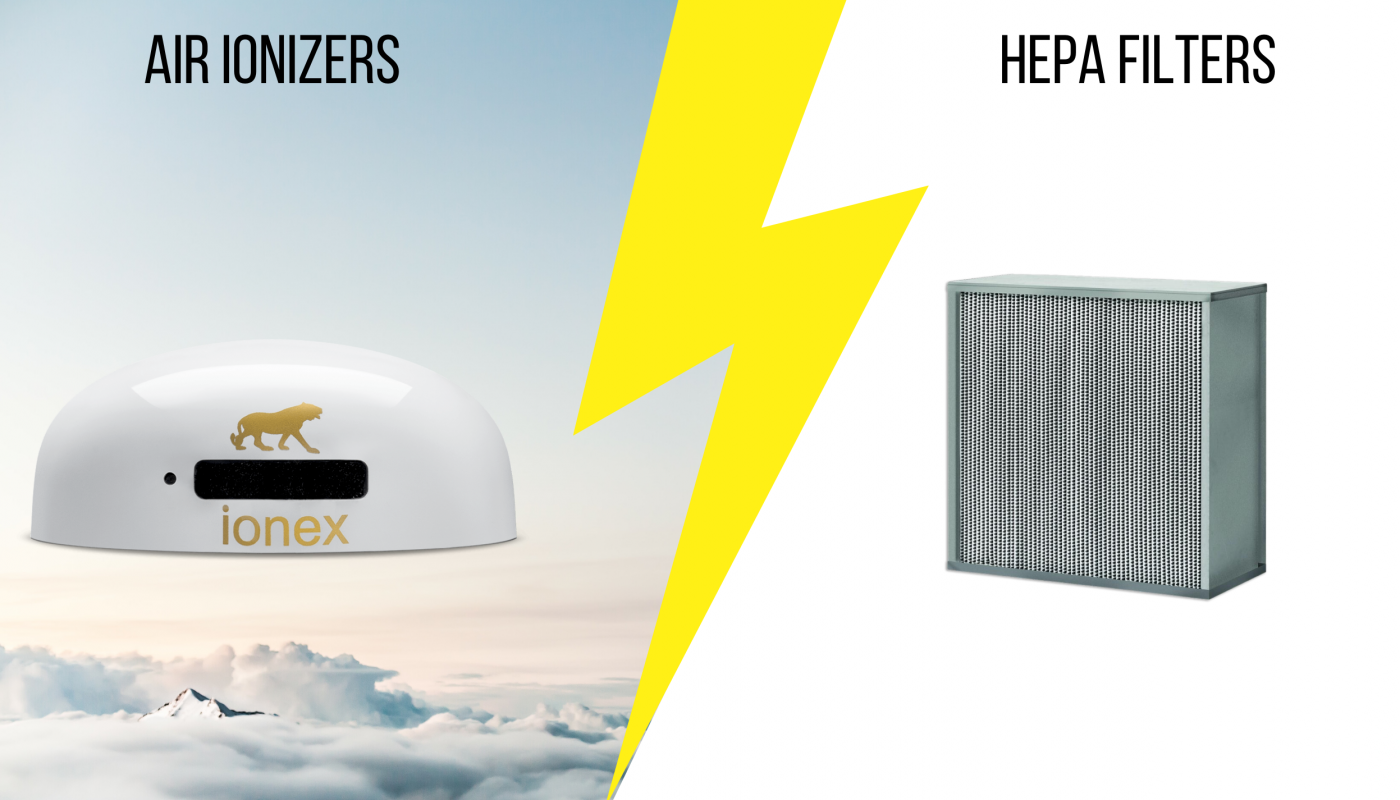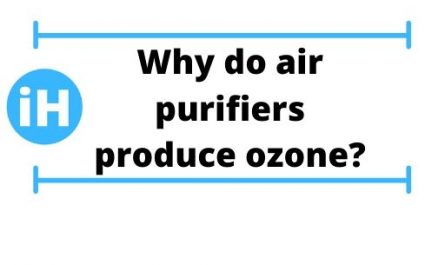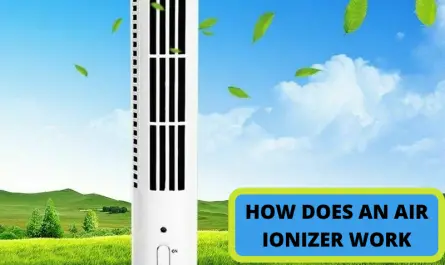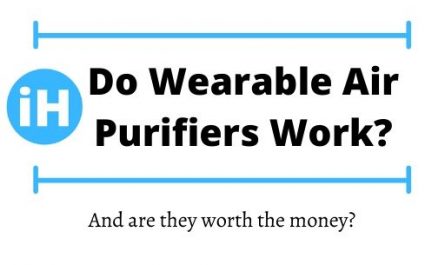Last updated on August 29th, 2021 at 10:25 am
HEPA filters and air ionizers are two commonly mixed things. They both have quite a few similarities (same end goal – clean air), but people generally do not separate them as much as they should. The confusion mostly happens because we frequently mention them together or we say one thing and mean another.
So, what is the difference between an air ionizer and air purifier? In short, all air ionizers are air purifiers, but not all air purifiers are air ionizers. Air ionizers are basically a subcategory of air purifiers. Other subcategories include HEPA filters, activated carbon filters, ozone generator, and UV light air purifiers. Air purifiers with HEPA filters are the most popular among the above-listed types of air purifiers, followed by air ionizers.
When people say air purifiers, they usually mean air purifiers that use HEPA filters, as they are by far the biggest group of air purifiers. For that reason, we are going to go a step further and write about the difference between an air ionizer and air purifier that uses HEPA filters.
Air purifier with HEPA filters
Air purifiers that use HEPA filter clean the air on a different principle than air ionizers. The simple explanation for the cleaning process goes like this:
- The air gets “sucked” into the device.
- Once inside, the sucked air goes through a filtration system that captures harmful particles.
- Clean air is released back into the room, while harmful particles and pollutants stay on the filters that are located inside of the device.
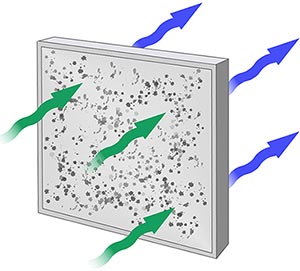
This process is pretty straightforward and effective, but it comes with downsides as well. First, we will look at the advantages/pros that HEPA filters bring:
- Effective – they can remove pretty much all pollutants that are over 0.3 micrometers in size
- No byproducts – other types of air purifiers emit some kind of byproduct during their operation. HEPA filters do not produce any harmful byproducts.
- Potentially long filter life – this depends on the type of filter and it differs from brand to brand, but filter life in some cases can be quite long (2-3 years).
Cons of air purifiers with HEPA filters
Next, we will look at the cons of HEPA filters, as it is very important to get the whole picture. The cons are:
- It cannot remove the smallest harmful particles. As we mentioned above, HEPA filters excel at removing particles that are larget than 0.3 micrometers. However, anything below that size is too small for HEPA filters to remove. Sadly these smallest particles are usually the ones that are most harmful to our health and bodies.
- Possible old and bacteria issues on filters. One of the main problems is that mold and bacteria tend to develop over time around filters. They can multiply themselves very fast and if we do not take care of this issue, they get released back into the “cleaned” air, which we breathe.
- Extra costs. Because we need to change filters regularly this translates to additional maintenance costs, which we have to keep in mind. Over time, these can stack up quickly – some filters even go for 200$, but the majority is between $20 to $40. On average, you can expect to change the filters once per 6 months.
Overall HEPA filters are a great solution when it comes to cleaning the air we breathe, but still fall short in some key areas.
Air ionizers
The other popular, yet still not very known, air purifier group are air ionizers. These are devices that work differently than HEPA filters. Their air cleaning process goes like this:
- Air ionizer produces negative ions, which they release into the air.
- Negative ions attach themselves to harmful particles. The combined mass is heaving enough for gravity to pull down.
- Once on the ground, we can simply sweep them off the floor.

Visual representation of how an air ionizer works. Source: Teqoya
This whole process is based on polarity. Everything in nature has an either negative or positive polarity. Same polarities repel while opposite polarities attract. Negative ions have a negative polarity (obviously) and harmful particles in the air have a positive polarity. You can probably see where we are going with this… A very simple yet very effective process. We have written a more detailed explanation in another post here.
The advantage of using an air ionizer is that they remove absolutely every harmful particle in the air, regardless of the particle size. This is very important as the smallest particles are the ones that cause the most severe health issues. So out of all types of air purifiers, air ionizers can be the most effective.
Cons of air ionizers
Air ionizers, despite their effectiveness, come with a few disadvantages/cons. These are:
- Ozone byproduct. The biggest disadvantage of air ionizers is their ozone byproduct during their operation. Ozone is good for us in the atmosphere as it protects us before harmful UV rays. However, ozone is bad for if we are indirectly exposed to it as it irritates our lungs and can cause further complications.
- Furniture and walls around the ionizer can become black/dirty. These black dust-like traces are actually the combined mass of negative ions and harmful PM particles. They exist in the air at all times, we just can not see them due to their small size. Once they attach themselves to negative ions they become visible to the naked eye. Since the air is not static, some of these masses of particles will not fall directly on the ground, but instead on the wall.
- Effectiveness depends on negative ion emission. Generally, you want at least a couple of million (we recommend 6-7 mil as a bare minimum) negative ions per cm3/second, for the air ionizer to be effective. This is because there are so many harmful particles in the air, that you need a large enough number of negative ions to be able to deal with all of the pollutants.
Comparison of pros and cons between air purifiers that use HEPA filters and air ionizers
To make things easier, we have made a comparison of air ionizer and air purifier differences. These are:
Air purifiers with HEPA filters
Pros
- Very effective method of cleaning the air – removes up to 99% of particles above 0.3 micrometers,
- Good for people with allergies as it prevents allergens from entering our body (good preventive measure),
- Can be combined with other types of filters to provide an even more powerful filtration system,
- Good air cleaning performance even at lower price point of around $50,
- Many come with additional smart features and adjustable settings.
Cons
- Not effective for removing harmful particles which are below 0.3 micrometers in size,
- Overall effectiveness is also tied to the type of filter used,
- Need to change filters, sometimes more than once per year. This represents extra expenses,
- Filters can become a hot spot for bacteria and therefore need to be cleaned from time to time. If not, these bacteria then get released back into the newly cleaned air.
Air ionizers
Pros
- Can be the most effective method of air cleaning. Negative ions remove even the smallest of particles from the air.
- Usually very small and compact devices,
- Many health benefits due to the positive effect of negative ions on the human body,
- A natural solution for allergies and asthma without side effects.
Cons
- Most air ionizers emit ozone as a byproduct,
- Somewhat limited operating range – usually below 500 square feet,
- Some harmful particles are deposited on the walls and furniture around the ionizer, making the walls dirty,
- Effectiveness depends on negative ion emission.
Air purifiers with HEPA filters and ionizers in one device?
At this point, we feel it is necessary to address a specific type of air purifiers that have both HEPA filters and an ionizing function. We have not included these kinds of devices in our comparison, since one function (almost always the ionizer function) is usually much weaker than the other. If you have a device that primarily cleans the air based on HEPA filters but still offers an ionizing function… you can be sure that this ionizing function will be very weak.
Consequently, you can not expect the same pros and cons from such a device as you would from a standalone, pure air ionizer. It is important to keep that in mind and not have unrealistic expectations of these kinds of air purifiers that combine different types of cleaning methods. There will always be a primary, strong cleaning function and a secondary, weaker air cleaning function.
Air ionizer and air purifier difference – Conclusion
Both HEPA filters and air ionizers represent a viable option for effective air cleaning. Both have their uses and negative aspects, but hopefully this article helped you understand more about the real air ionizer and air purifier difference. You learned that air ionizers are just a sub-group of air purifiers and that the real comparison lies between an air ionizer and air purifier with HEPA filters.
Generally, we lean more towards air ionizers but the major factor here (for us) is the amount of ozone they produce. If the air ionizer produces no ozone and has a big enough negative ion emission – then air ionizers all the way! Otherwise, HEPA filters are a better air cleaning solution. If you are new to the air purifying world and are looking for budget-friendly and effective air purifiers that use HEPA filters, then feel free to check out our list of the top 5 best air purifiers under $50.
And there you have it – you learned about the main air ionizer and air purifier difference, while also expanding your knowledge on the difference between an air ionizer and air purifier that uses a HEPA filter.
We also wrote about the difference between an air ionizer and ozone generator (another type of air purifier), which you can find here.
